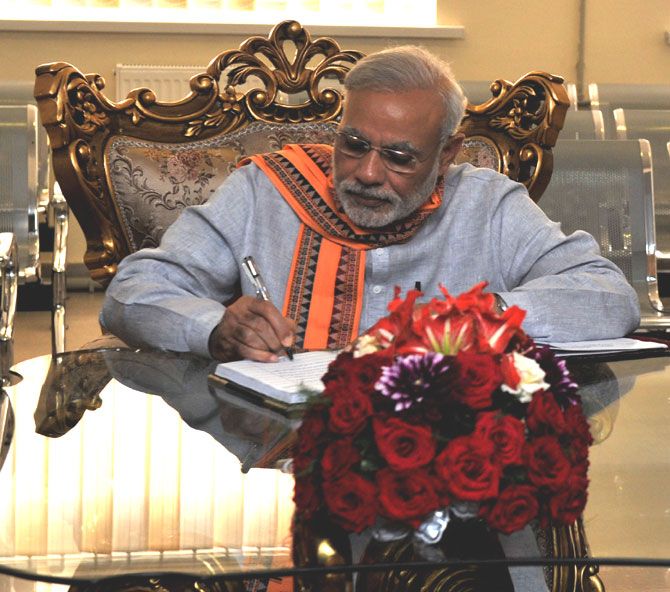While going back to the old bill is only a face saver, there is little in the bill that will excite industry or the markets, says Shishir Asthana.

The U-turn by the National democratic Alliance government on the amendments to the Land Bill 2013 has turned out to be the biggest source of embarrassment for the Narendra Modi led government. Its pro-reform, pro-industry agenda has fallen flat on its face. With the government not able to convince its own allies, let alone the opposition, it is now contemplating to roll back crucial amendments which it had brought to the earlier bill.
Sitaram Yechury, General Secretary CPI (M) rightly pointed out that if the government is going back to the old land bill by dropping the amendments, then why did it bring the three ordinances in the first place and waste parliament’s time.
For the government, clearing the bill is only a face saver, there is little in the bill that will excite industry or the markets. From the beginning, government had made the Land Bill a prestige issue but could not convince opposition and some of its own allies despite putting their political might in getting the amendments in place.
But for the markets, nothing much will change even if the Land Bill as envisaged by the NDA government is not cleared. This is because Land Acquisition is on the concurrent list, meaning both the states and the central government can have their own laws for land acquisition and if the state law has been cleared by the President of India, then the centre cannot overrule it. In other words states will have overriding powers on land acquisition.
This is how Narendra Modi as the chief minister of Gujarat and other state governments were successful in allocating land to industries. In a recent meeting with chief ministers of various states which was boycotted by the opposition, the BJP ruled chief ministers wanted the government to allow them to pursue their own laws.
Several state governments proposed they could enact their own land laws consistent with the amendments proposed by the Centre in the land acquisition Bill, 2015, rather than waiting indefinitely for a consensus. “If the Centre fails to approve this (Bill) with consensus, it should be left to states. Those states that want to develop fast... can suggest their own state legislation and the Centre (would) approve that state legislation. An overwhelming section gave such a suggestion.” Finance Minister Arun Jaitley had said after the meeting.
Allowing states to have their own law will help separate the progressive states from the laggards. A uniform Land Acquisition Bill would have prevented such competition among states.
A uniform act would have been beneficial for industries since it would mean that they would not have to deal with different laws in different states. But as we have seen in the case of Tata Motors' Nano plant in Gujarat, industry would go to places that offer the best deal. Competing states would be more beneficial to the industry than a standardised law.
There is no doubt that the 2013 Act passed by the UPA government has hampered development as land procurement for industry and infrastructure is stuck up in land acquisition. The economic survey released in February this year highlighted the problem of the Act. According to the survey, 161 stalled government projects were due issues around land acquisition.
The two main issues which had made land acquisition time consuming and costly were the consent clause and the social impact assessment. Arvind Panagariya, vice chairman of Niti Aayog in an interview to Economic Times said that under the Land Act, 2013 it will take up to five years for acquiring land assuming that all steps progress smoothly. This would mean the end of the ‘Make in India’ story.
According to reports, around Rs 3 lakh crore worth of projects are stuck up at various stages. The best case is the Kochi-Kuttanad-Bangalore-Mangalore pipeline project which is awaiting land clearance from the Tamil Nadu government. Petronet operates the gas terminal who say it could operate its terminal at only 10 per cent capacity because Gas Authority of India (GAIL) could not get permission to lay the pipelines.
It will be a tactical defeat for the government if it concedes to the terms demanded by the opposition, but this would at least break the logjam in the parliament and force the state governments to act.
Photograph, courtesy: MEA/Flickr











